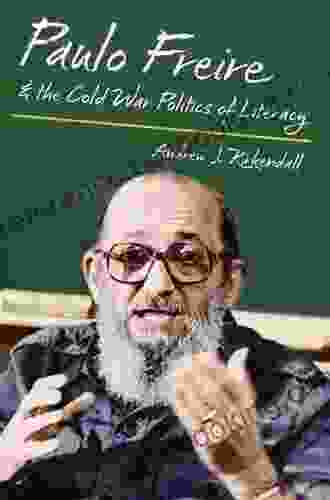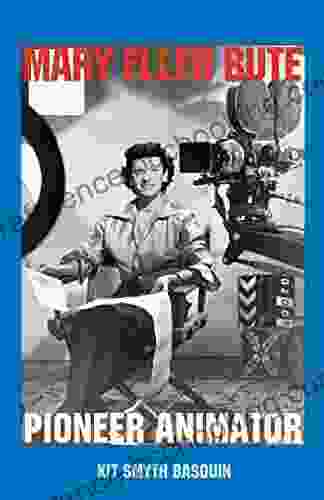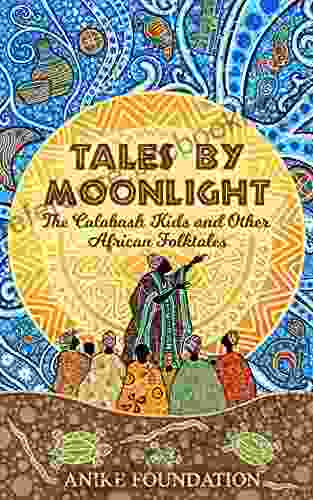Paulo Freire and the Cold War Politics of Literacy: Unveiling the Hidden History

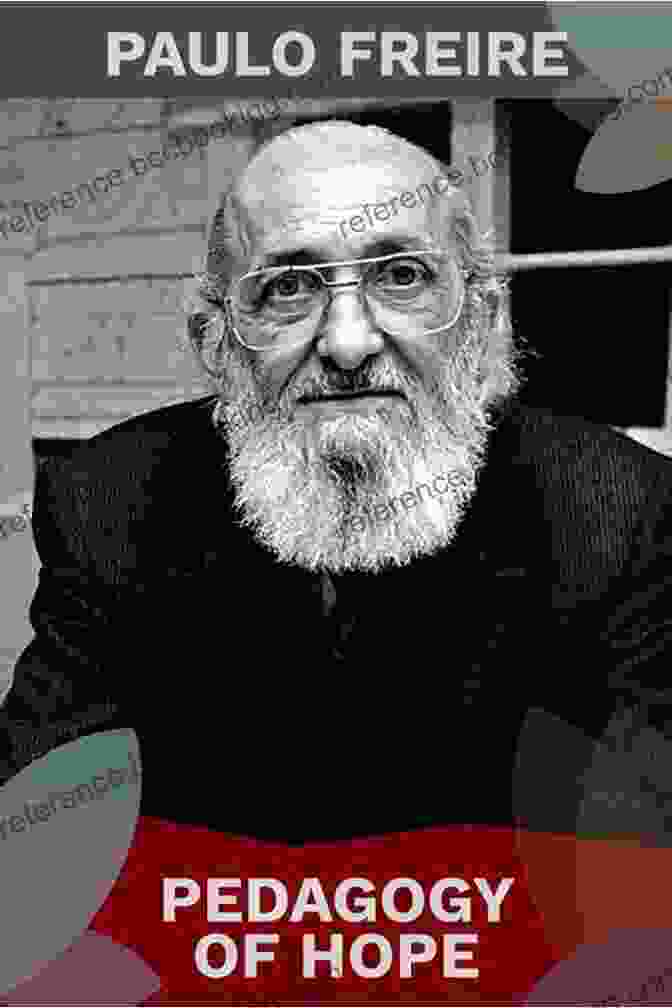
4.1 out of 5
| Language | : | English |
| File size | : | 1725 KB |
| Text-to-Speech | : | Enabled |
| Screen Reader | : | Supported |
| Enhanced typesetting | : | Enabled |
| Word Wise | : | Enabled |
| Print length | : | 264 pages |
: Literacy and the Geopolitical Landscape
During the Cold War era, the concept of literacy became a battleground of ideologies, with both the United States and the Soviet Union recognizing its potential as a tool for shaping hearts and minds. In the midst of this charged atmosphere, a Brazilian educator named Paulo Freire emerged as a revolutionary figure, championing a radical vision of literacy that challenged the traditional power dynamics of education.
Freire's "Pedagogy of the Oppressed," first published in 1968, became a seminal work in the field of education. His approach emphasized critical thinking, dialogue, and empowerment, aiming to transform learners from passive recipients of knowledge into active agents of their own liberation. This radical perspective resonated deeply with liberation theologians and progressive movements across Latin America, who saw in Freire's ideas a powerful tool for social transformation.
Freire's Early Life and Influences
Paulo Freire was born in 1921 in Recife, Brazil, into a family of modest means. His early experiences with poverty and social injustice left an indelible mark on his worldview, shaping his lifelong commitment to education as a force for social change.
Freire's intellectual journey was influenced by a diverse range of thinkers, including existentialist philosophers, Marxist theorists, and Brazilian educators. From Jean-Paul Sartre, he adopted the notion of human existence as a process of becoming, emphasizing the potential for transformation through action and reflection. From Karl Marx, he drew inspiration from the analysis of class struggle and the critique of oppressive structures.
The Literacy Campaign and its Impact
In the 1960s, Freire's ideas gained traction in Brazil, as the country grappled with widespread illiteracy. The military government, keen on showcasing its commitment to social development, launched a national literacy campaign based on Freire's principles.
Over a short period, Freire's literacy program achieved remarkable success, reaching millions of illiterate adults and empowering them with the ability to read and write. This unprecedented achievement earned Freire international recognition and solidified his position as a leading figure in the field of education.
However, Freire's approach was not without its detractors. Conservative critics denounced his methods as subversive, claiming that they promoted class conflict and threatened the established social Free Download. The military government, facing mounting pressure, eventually withdrew its support for Freire's program.
Exile, International Recognition, and the Pedagogy of Hope
In 1964, following the military coup in Brazil, Freire was forced into exile. He continued his work in various countries, including Chile, Geneva, and the United States. During this period, he further developed his theory of education, emphasizing the importance of dialogue, collaboration, and the recognition of the learner's own knowledge and experiences.
Freire's writings gained global recognition, inspiring educators, activists, and scholars worldwide. His concept of "critical literacy" became a cornerstone of progressive education, challenging traditional notions of literacy as a technical skill and emphasizing its transformative potential for social change.
In the 1990s, Freire returned to Brazil, where he continued to advocate for social justice and educational reform until his death in 1997. His legacy lives on through the countless educators, activists, and scholars who continue to draw inspiration from his work.
Freire's Enduring Legacy: Education for Liberation
Paulo Freire's contributions to the field of education are immeasurable. His "Pedagogy of the Oppressed" has become a foundational text for critical pedagogy, empowering learners to critically examine their world and take action to transform it.
Freire believed that education should not be a passive process of transmitting knowledge but rather an active and transformative dialogue between learners and educators. He emphasized the importance of recognizing the learner's own knowledge and experiences, and of creating a classroom environment that fosters critical thinking, collaboration, and collective action.
Freire's ideas have resonated with countless educators, activists, and scholars worldwide, who have applied his principles to a wide range of educational contexts, from literacy programs to university classrooms. His legacy continues to inspire movements for social justice and educational reform, empowering marginalized communities to take control of their own learning and to become agents of change in their societies.
: Literacy as a Force for Social Transformation
Paulo Freire's life and work stand as a testament to the power of education as a force for social transformation. His "Pedagogy of the Oppressed" has inspired generations of educators, activists, and scholars to challenge traditional notions of literacy and to recognize its transformative potential for social change.
Freire's legacy is particularly relevant in today's world, where the struggle for social justice and educational equity continues. His ideas offer a roadmap for creating inclusive and empowering educational environments that foster critical thinking, dialogue, and collective action. By embracing Freire's vision of education as a tool for liberation, we can empower individuals and communities to break the cycle of oppression and create a more just and equitable world.
4.1 out of 5
| Language | : | English |
| File size | : | 1725 KB |
| Text-to-Speech | : | Enabled |
| Screen Reader | : | Supported |
| Enhanced typesetting | : | Enabled |
| Word Wise | : | Enabled |
| Print length | : | 264 pages |
Do you want to contribute by writing guest posts on this blog?
Please contact us and send us a resume of previous articles that you have written.
 Book
Book Novel
Novel Page
Page Chapter
Chapter Text
Text Story
Story Genre
Genre Reader
Reader Library
Library Paperback
Paperback E-book
E-book Magazine
Magazine Newspaper
Newspaper Paragraph
Paragraph Sentence
Sentence Bookmark
Bookmark Shelf
Shelf Glossary
Glossary Bibliography
Bibliography Foreword
Foreword Preface
Preface Synopsis
Synopsis Annotation
Annotation Footnote
Footnote Manuscript
Manuscript Scroll
Scroll Codex
Codex Tome
Tome Bestseller
Bestseller Classics
Classics Library card
Library card Narrative
Narrative Biography
Biography Autobiography
Autobiography Memoir
Memoir Reference
Reference Encyclopedia
Encyclopedia Andreas Quast
Andreas Quast Amber Domoradzki
Amber Domoradzki Alison Goodman
Alison Goodman Amy Perry
Amy Perry Angelo Parra
Angelo Parra Andrew Zeller
Andrew Zeller Allen Everett
Allen Everett Alice Childress
Alice Childress Alyssa Nicole Chlebek
Alyssa Nicole Chlebek Ananish Chaudhuri
Ananish Chaudhuri Alison Acheson
Alison Acheson Alexandra M Levitt
Alexandra M Levitt Alexandra Wolff
Alexandra Wolff Amalia Hoffman
Amalia Hoffman Allison Brennan
Allison Brennan Amy Van Zee
Amy Van Zee Alex Zadeh
Alex Zadeh Amy Blackstone
Amy Blackstone Amandine Cavalieri
Amandine Cavalieri Andrew Moriarty
Andrew Moriarty
Light bulbAdvertise smarter! Our strategic ad space ensures maximum exposure. Reserve your spot today!

 Clinton ReedHow to Build Hug: The Ultimate Guide to Creating a Strong and Lasting Embrace
Clinton ReedHow to Build Hug: The Ultimate Guide to Creating a Strong and Lasting Embrace Craig BlairFollow ·4.1k
Craig BlairFollow ·4.1k Max TurnerFollow ·12k
Max TurnerFollow ·12k Ralph TurnerFollow ·18k
Ralph TurnerFollow ·18k Greg FosterFollow ·13.2k
Greg FosterFollow ·13.2k William FaulknerFollow ·14.7k
William FaulknerFollow ·14.7k Joseph FosterFollow ·2.9k
Joseph FosterFollow ·2.9k Ian MitchellFollow ·4.2k
Ian MitchellFollow ·4.2k Fyodor DostoevskyFollow ·6.1k
Fyodor DostoevskyFollow ·6.1k
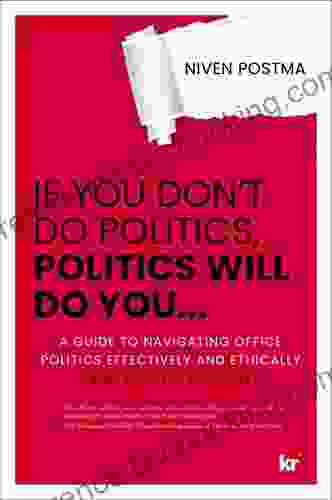
 Julio Cortázar
Julio CortázarIf You Don't Do Politics, Politics Will Do You
Uncover the Hidden Power in Everyday Life In...
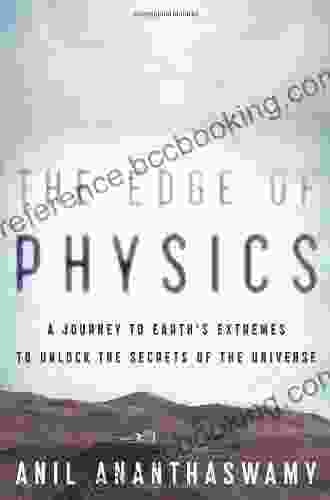
 Ivan Turner
Ivan TurnerThe Edge of Physics: Unraveling the Extraordinary...
What is the nature of...
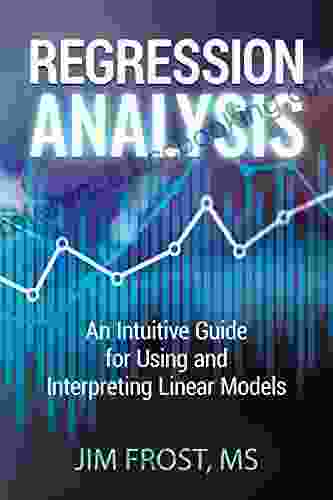
 Diego Blair
Diego BlairAn Intuitive Guide For Using And Interpreting Linear...
Linear models...
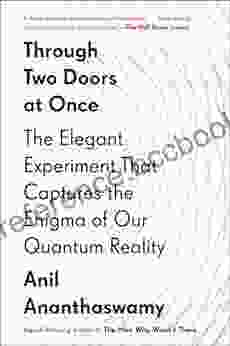
 Oscar Wilde
Oscar WildeThrough Two Doors At Once: Unveiling the Enigmatic World...
Prepare to delve into the captivating realm of...
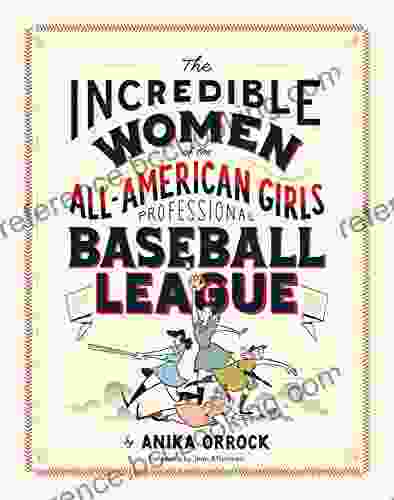
 Darrell Powell
Darrell PowellWomen Athletes in History: An Inspiring Gift for Teenage...
Unveiling the Extraordinary Stories of Female...
4.1 out of 5
| Language | : | English |
| File size | : | 1725 KB |
| Text-to-Speech | : | Enabled |
| Screen Reader | : | Supported |
| Enhanced typesetting | : | Enabled |
| Word Wise | : | Enabled |
| Print length | : | 264 pages |


